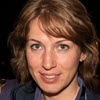BPD and Eating Disorders
41,717 View
Share this Video
- Publish Date:
- February 16, 2024
- Category:
- Eating Disorders
- Video License
- Standard License
- Imported From:
- Youtube
Tags
Order The Borderline Personality Disorder Workbook by Dr. Fox: https://goo.gl/LQEgy1
Dr. Fox’s latest (research based book): Antisocial, Narcissistic, and Borderline Personality Disorders: A New Conceptualization of Development, Reinforcement, Expression, and Treatment: https://www.amazon.com/Antisocial-Narcissistic-Borderline-Personality-Disorders/dp/0367218054
In this video, we will discuss four types of eating disorders and related criteria. Then we will examine the intersection of BPD and eating disorders. These are complex disorders to identify and treat and a caring and compassionate approach is central to both.
Key points and tactical tips:
Anorexia nervosa - People with anorexia generally view themselves as overweight, even if they’re dangerously underweight. They tend to constantly monitor their weight, avoid eating certain types of foods, and severely restrict their calories.
There are two types of Anorexia— the restricting type and the binge eating and purging type. Individuals with the restricting type lose weight solely through dieting, fasting, or excessive exercise. Individuals with the binge eating and purging type may binge on large amounts of food or eat very little. In both cases, after they eat, they purge by forcing vomiting, taking laxatives or diuretics, or exercising excessively.
Bulimia nervosa - People with bulimia frequently eat unusually large amounts of food in a specific period of time. Each binge eating episode usually continues until the person becomes painfully full. During a binge, the person usually feels that they cannot stop eating or control how much they are eating.
Binge eating disorder - Individuals with this disorder have symptoms similar to those of bulimia or the binge eating subtype of anorexia. They typically eat unusually large amounts of food in relatively short periods of time and feel a lack of control during binges.
Unspecified Feeding or Eating Disorder, used to be called Eating Disorder NOS. This includes symptoms characteristic of a feeding and eating disorder that cause clinically significant distress or impairment in social, occupational, or other important areas of functioning predominate but do not meet the full criteria for any of the disorders in the feeding and eating disorders diagnostic class.
From a core and surface content perspective: Core content can be a variety of things for those with eating disorder or BPD, but there are some that are common. BPD common core content areas are emptiness and abandonment and those with eating disorders it tends to be control. Addressing this core content and building insight is a great first step but not the final step. We need behavior change, to help with this we need a stabilized perception of self but we know those with BPD often see the world through their BPD lens that is distorted. Eating disorders are complex to treat and require treatment with a knowledgeable and skilled professional. DBT has been found to be an effective treatment for eating disorders.
Daniel J. Fox, Ph.D., is a licensed psychologist in Texas, international speaker, and a multi-award winning author. He has been specializing in the treatment and assessment of individuals with personality disorders for over 15 years in the state and federal prison system, universities, and in private practice.
He has published several articles in these areas and is the author of:
Antisocial, Narcissistic, and Borderline Personality Disorders: A New Conceptualization of Development, Reinforcement, Expression, and Treatment. Available at: https://www.drdfox.com/books
The Borderline Personality Disorder Workbook: An Integrative Program to Understand and Manage Your BPD. Available at: https://goo.gl/LQEgy1
Antisocial, Borderline, Narcissistic and Histrionic Workbook: Treatment Strategies for Cluster B Personality Disorders (IPBA Benjamin Franklin Gold Award Winner): https://goo.gl/BLRkFy
Narcissistic Personality Disorder Toolbox: 55 Practical Treatment Techniques for Clients, Their Parents & Their Children (IPBA Benjamin Franklin Silver Award Winner):: https://goo.gl/sZYhym
The Clinician’s Guide to Diagnosis and Treatment of Personality Disorders: https://goo.gl/ZAVe9v














